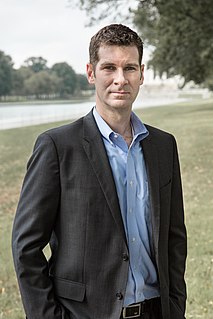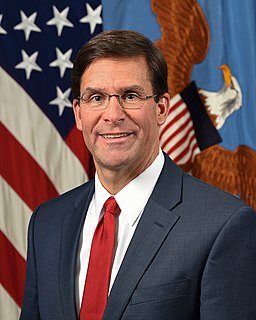A Quote by P. W. Singer
It's very clear that there are greater threats to these ships since, arguably, World War II. There are new technologies that can now reach them and make them harder to defend, such as anti-ship missiles, combined with space based tracking. The bigger issue, though, is who are gaining those capabilities. With what's going on with China and Russia, we are returning to geopolitical state-by-state competition. The Navy has not had to fight a peer for control of the sea since the Battle of Midway 75 years ago.
Quote Topics
Anti
Arguably
Based
Battle
Bigger
Capabilities
China
Clear
Combined
Competition
Control
Defend
Fight
Gaining
Geopolitical
Going
Greater
Had
Harder
Issue
Make
Midway
Missiles
Navy
New
Now
Peer
Reach
Returning
Russia
Sea
Ship
Ships
Since
Space
State
Technologies
Them
Those
Though
Threats
Tracking
Very
War
World
World War
World War I
World War II
Years
Years Ago
Related Quotes
Russia and [Vladimir] Putin`s antipathy toward Hillary Clinton from her time as secretary of state, Russia`s antipathy and loathing and fear of the U.S. State Department in general, those two - those things that we know about Russia they put a worrying cast over how successfully the new administration here has hollowed out and emptied out the U.S. State Department in just the few weeks since then been in charge.
From the first day I took the decision as President to defend my country. So, who killed ? That's another question. Actually, the terrorists have been killing our people since the beginning of this crisis two years and a half ago, and the Syrian people wanted the government and the state institutions and the army and the police to defend them, and that's what happened.
Because the US has control of the sea. Because the US has built up its wealth. Because the US is the only country in the world really not to have a war fought on its territory since the time of the Civil War ... Therefore we can afford mistakes that would kill other countries. And therefore we can take risks that they can't ... the core answer to why the United States is like this is we didn't fight World War I and World War II and the Cold War here.
Iraq has the second largest oil reserves in the world, it is right in the midst of the major energy reserves in the world. Its been a primary goal of US policy since World War II to control what the State Department called "a stupendous source of strategic power" and one of the greatest material prizes in history.
However, there is a fundamental difference between the issue related to Japan's history and our negotiations with China. What is it all about? The Japanese issue resulted from World War II and is stipulated in the international instruments on the outcomes of World War II, while our discussions on border issues with our Chinese counterparts have nothing to do with World War II or any other military conflicts. This is the first, or rather, I should say, the second point.
Growing up in the shadow of Johnson Space Center and moving to Texas to welcome our last moon mission home, I wanted to be an astronaut. Combined with my love for Navy history and World War II flight ops, and unsatisfying degrees in college and law school, I joined the Navy and became a naval aviator.
The threat of Saddam Hussein with weapons of mass destruction is real, but as I said, it is not new. It has been with us since the end of that war, and particularly in the last 4 years we know after Operation Desert Fox failed to force him to reaccept them, that he has continued to build those weapons. He has had a free hand for 4 years to reconstitute these weapons, allowing the world, during the interval, to lose the focus we had on weapons of mass destruction and the issue of proliferation.































